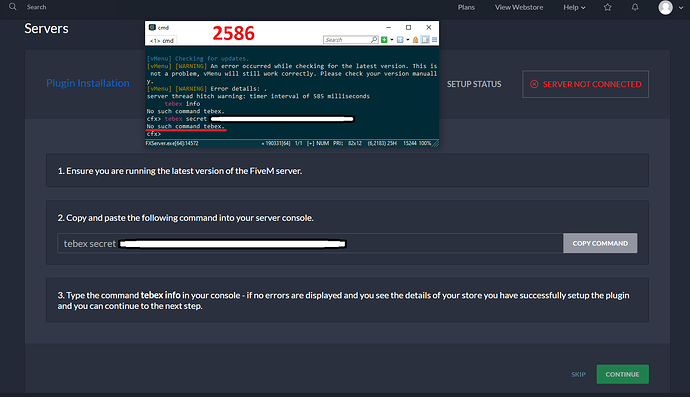While I agree with you about the market competition, I do find this problematic for a number of reasons. For example, we all know that there are essentially two types of developers. The developers that encounter something not working and they go about trying to fix it, and the others that encounter something not working and either partially makes it work without knowing the consequences of what they’ve done or outright delete the resource altogether. By fracturing the community with how easy it is for anyone and everyone to build a server, this makes it difficult for the types of servers (notably roleplay servers) that require a sizable amount of players for roleplay scenarios. Then you have user experience which could either be greatly enhanced by the said server or could be a significant negative impression on the user depending on how well the server runs. Positive is great, but negative no doubt leads to problems for that server and potentially negative publicity against FiveM.
Removing the TOS that isn’t enforced off the table, competition such as Patreon which offers three tiers, Paypal which offers varying percentages depending on your level of user and even the smaller knock-off style Patreon portals. Obviously, if TOS was actively enforced, then essentially there’d be no choice, but now with I’d at least 40% of servers using Patreon (could be low balling) it’d be impossible without major issues to enforce the TOS and thus I feel a lot will go with the 5-8% cut that Patreon takes or the 3-12% that Paypal takes and so on.
We could spend all day discussing client-side and server-side issues, the biggest one that comes to mind is how the client and server independently handle cache. Through my trials developing on the framework in a short time, it seems to be a major root of evil at least for client-side issues. We won’t even get into the server-side as that side is over-saturated with code that has had dozens of hands in it and out of the dozens only a handful that know what they’re doing.
I think the only real hurdle with the payment processing aspect would be that of the legal scope. The essential process is pretty straight forward when it comes to most card types for example.
Resource consumption piece, through testing and analyzing the code, how each side communicates and the overall situation, I think the key to this would be to tighten the requirements and thresholds so that its more strict on what it is allowed to accept into the client. This improves performance and while it does potentially set the scripting community back a bit, the true developers that focus on their craft will adapt and start pumping out more refined scripts. Granted, I do see this being an issue since its frowned upon (okay maybe worse than that) to sell scripts for profit, which no doubt limits the pool of devs on the framework, but I seriously think the client is just too loose on the thresholds. Props for the client handling so many versions of spiderweb code, but at what cost? The coining of quality over quantity when it comes to scripting comes to mind in this instance.
I did not proofread the above, as I’m dying from eye strain as I’ve been staring at code for over twelve hours, so hopefully the above makes sense and provides some worthwhile arguments and examples.





